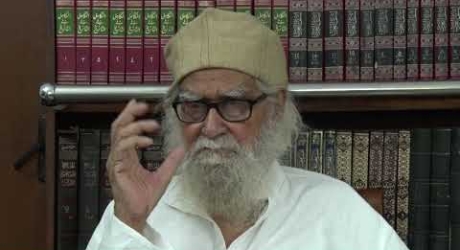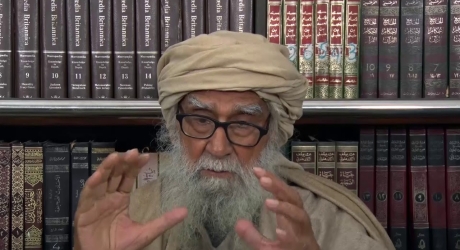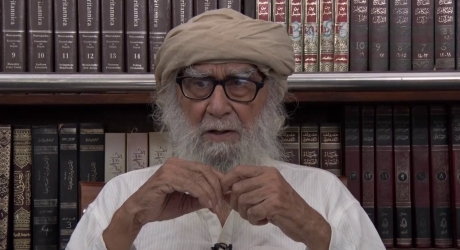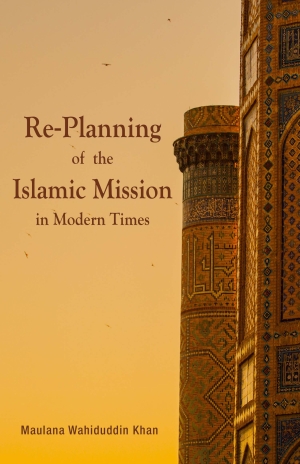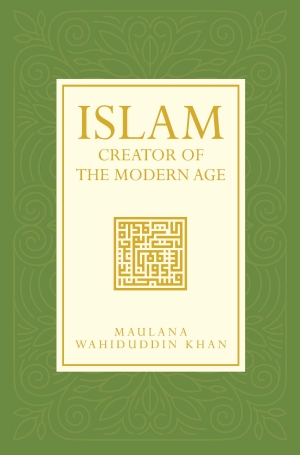When you believe that ‘you know’ while you do not, you deprive yourself of the most significant source of intellectual development, the spirit of enquiry. Almost all the sciences have been the product of this spirit. First, the spirit of enquiry has to be fostered; only then will it lead to research and discoveries.
In the famous story alluded to Isaac Newton, an apple that fell on him led him to wonder and contemplate the mysterious universe. Soon he understood that the very same force that made the apple fall toward the ground also keeps the moon from falling toward the earth and the earth from falling toward the sun: gravity
People do not know, but they are convinced that they know. This tendency is the greatest hindrance to intellectual development.
An Arabic saying translates as, ‘to say ‘I do not know’ is one half of knowledge.’ When you discover your ignorance about something, you will try to gain knowledge about it. However, if you believe that you know it all, it will be a life of ignorance.
Acknowledge ignorance and then discover rather than live in perpetual ignorance with the false belief that ‘I know I am right’.
Featured Articles
Featured Videos
FAQs
The Prophet of Islam always encouraged the spirit of enquiry. Unfortunately, present-day Muslims seem to have forgotten this key teaching of the Prophet. It is very important for all Muslims to spend more and more time in educating themselves in contemporary education as well as the rightful interpretation of the Quran and Hadith. Knowledge is a sign of guidance; knowledge is not limited to religion alone; and knowledge is as vast as the universe. The Quran makes a distinction between the learned and the ignorant:
“Are those who know equal to those who do not know?” (39:9)
Often I come across instances where the sayings of ulemas (scholars) are accepted without any rational evaluation. This lack of spirit of enquiry is the root cause of the prevalent intellectual degeneration and conflicts among Muslims. According to a Hadith narrated by al-Tirmidhi, the Prophet said:
“The scholars are the heirs of the Prophets, for the Prophets did not leave behind dinars or dirhams, rather they left behind knowledge, so whoever gains knowledge has gained great good fortune.” (Classed as Sahih by al-Albaani)
Islam, therefore, encourages the spirit of enquiry in the complete sense of the word.
Source: The True Face of Islam
The Quran, in fact, has given a new outlook, a new perspective or paradigm as coined by Thomas Kahn (The Structure of Scientific Revolution, 1955). According to this Quranic paradigm, man’s most important activity being intellectual contemplation or reflection, he was not supposed to blindly follow any idea or notion just because it was attributed to his ancestors or some other authority. He had to ponder on it critically and realistically. That is why we find that the Quran is replete with hundreds of inspirational and motivational verses that invite man to reflect on the wonderful creatures of God.
For example: In the creation of the heavens and the earth, and the alternation of night and day, there are signs for people with intelligence, those who remember God standing, sitting, and lying on their sides, and reflect on the creation of the heavens and the earth, (saying) Our Lord! You have not created all this in vain (without purpose), Glory be to You. (3:190-91, 7:176, 10:24, 13:3, 16:11).
This, we can say, was the intellectual seed, which is called in academic circles the spirit of enquiry. It is this spirit of inquiry, which has played the greatest role in bringing about the age of science. It is the zeal to discover which has led man to knowledge.
According to Toynbee and other world historians, this spirit of enquiry was the first and foremost prerequisite for the inauguration of the scientific era and the elimination of a superstitious outlook on nature and life. So it would not be an exaggeration to say that it is the Quran that has laid down the foundation of modern science. On the other hand, the Prophet himself has dealt with day-to-day problems of life in accordance with this realistic approach taught by the Quran. Consequently, the same realistic approach became an integral part of the frame of mind of his companions. They all became curious, inquisitive and realistic in all matters of life.
Source: Spirit of Islam August 2017
There is a common belief about Islam that it teaches its adherents to be close-minded. In fact, Islam teaches the spirit of enquiry and asks its adherents to remove their ignorance by seeking answers to questions. According to a tradition, the Prophet of Islam once remarked:
“The remedy for ignorance is asking questions.” (Sunan Abu Dawud, Hadith No. 336)
If the ignorant man does not inquire, his ignorance will stay with him. But if he has a questioning mind, some knowledgeable person will answer him, and he will no longer remain ignorant.
There is a saying in Arabic to the same effect: To know that you do not know is half knowledge itself. If an ignorant person is not aware of his ignorance, he will continue to remain in the same state. But when he becomes aware of his ignorance, he sets about seeking knowledge. He will try to turn his ignorance into knowledge. In this way, his awareness of his ignorance will become the stepping-stone leading toward knowledge.
In ancient times, phenomena of nature were considered to be manifestations of God. The sight of the manifestations of nature, therefore, aroused in man the spirit of worship. It was only when these natural phenomena were divested of their divinity that the spirit of inquiry could be aroused in man. As a result, many of the mysteries of nature were discovered.
Source: Spirit of Islam August 2017


